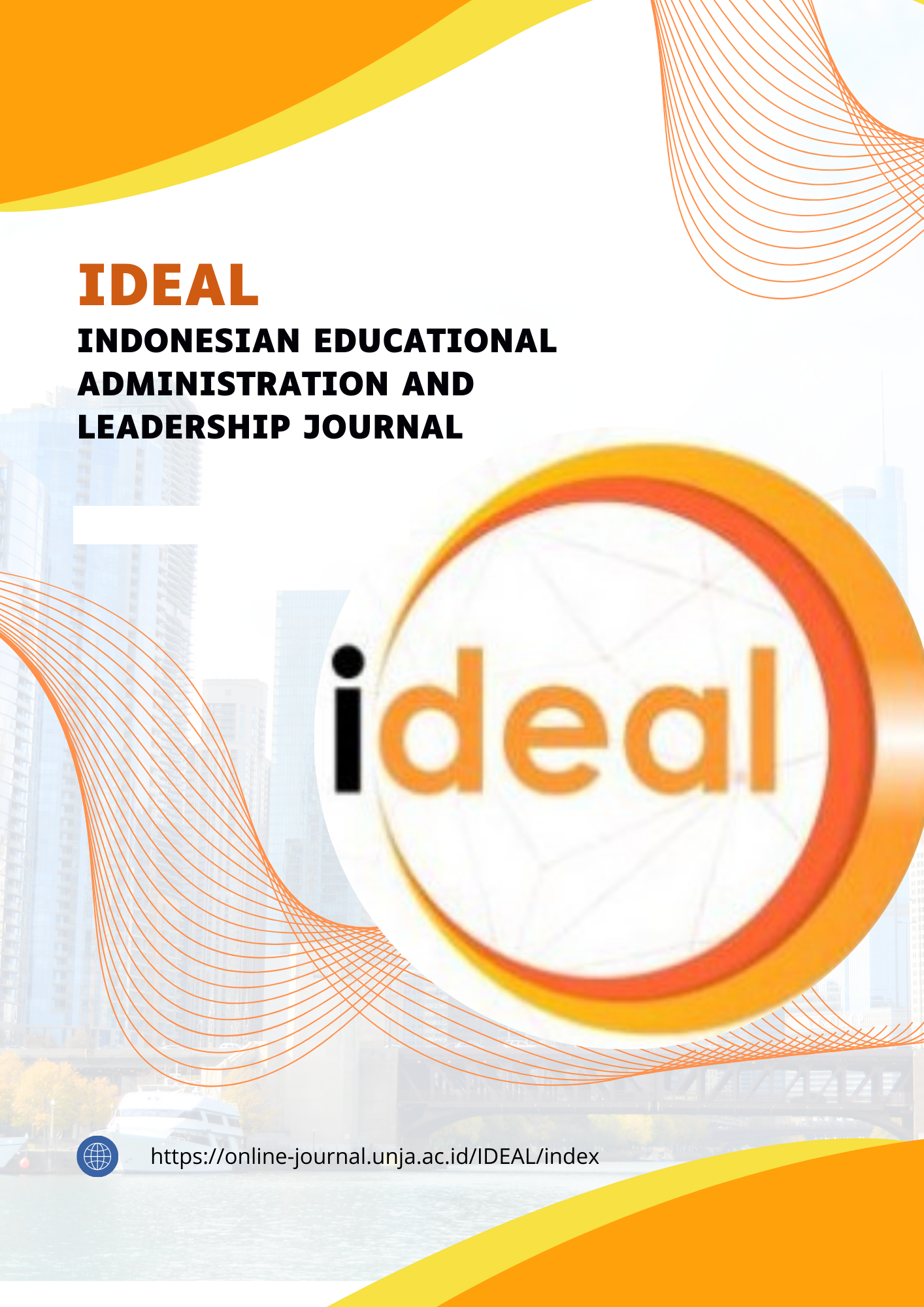Pengaruh Organisasi Kemahasiswaan, Konflik Peran, Stres Organisasi Terhadap Pretasi Akademik Mahasiswa FKIP Universitas Jambi
DOI:
https://doi.org/10.22437/ideal.v2i2.31270Abstract
This study aims to examine the influence of Student Organizations, Role Conflict, and Organizational Stress on the Academic Achievement of students in the Faculty of Education (FKIP) at the University of Jambi. This research utilizes a quantitative method. Furthermore, G Power is used to determine an adequate sample size, with a total of 218 collected respondents, reaching a test power of 0.95 from a population of 8,968. Data analysis is conducted using the SEM-PLS (Structural Equation Modeling with Partial Least Squares) method based on Smart PLS version 3.2.9 with established procedures. To generate the Effect Size (F2) value, it is found that the Student Organization variable significantly influences Organizational Stress with values of (0.100), (0.069), and Role Conflict significantly influences Organizational Stress with values of (0.499), (0.729), while Organizational Stress significantly influences Academic Achievement with a value of (0.729). Based on the research findings, it can be concluded that Student Organizations, Role Conflict, and Organizational Stress have a significant and influential impact on the Academic Achievement of students in the Faculty of Education (FKIP) at the University of Jambi. This means that the improvement or decline in Academic Achievement of FKIP students is also influenced by Student Organizations, Role Conflict, and Organizational Stress.
Downloads
Downloads
Published
How to Cite
Issue
Section
License
Copyright (c) 2020 Lidya Saputri, Putri Aamalia Puspita, Dian Arisandy Eka Putra Sembiring

This work is licensed under a Creative Commons Attribution 4.0 International License.











